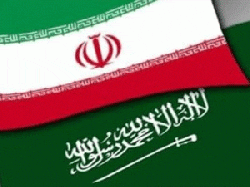GENEVA – Iran and Saudi Arabia, which back opposite sides in Syria’s war, are among more than 30 countries slated to attend a peace conference next month, diplomats said.
The Geneva 2 conference, a follow-up to a 2012 meeting, is aimed at mapping out a political transition to end nearly three years of fighting that has killed more than 120,000 people and displaced millions.
But the January 22 meeting will actually be held at the lakeside Swiss city of Montreux because of a shortage of hotel rooms in Geneva, which will be hosting a luxury watch fair, a Western diplomat told AFP.
“At the moment there are 32 countries invited, but that number may increase because everyone wants to come,” an Arab diplomat told AFP.
“In addition to the five permanent members of the Security Council (the United States, Britain, France, Russia and China), there are the neighboring countries, as well as Saudi Arabia and Iran, and also Germany and Italy and others.”
Iran is a key ally of President Bashar al-Assad, while Saudi Arabia has strongly backed the rebels.

Most countries will be represented by their top diplomats and “each minister can speak for five minutes,” the Arab diplomat said. Afterwards, many of the foreign ministers will attend the World Economic Forum in Davos, which runs from January 22 to 25.
The government and the opposition will each send delegations to the meeting, and will hold bilateral talks hosted by UN-Arab League envoy Lakhdar Brahimi on January 24 in Geneva.
“Each delegation will be composed of nine members and both the regime and the opposition should present their lists to the UN by December 27, but it is not certain they will respect this date,” the Arab diplomat said.
Composing the list could prove a daunting task for Syria’s opposition, which is riddled with internal divisions and increasingly at odds with powerful rebel groups fighting on the ground, many of which have rejected the conference.
Saudi Arabia’s intelligence chief Bandar bin Sultan told Russian President Vladimir Putin this month that Riyadh would send a delegation to the meeting, but only on the condition the opposition is represented by the National Coalition, an umbrella group backed by Western and Arab nations, according to a third diplomat who did not wish to be identified.
Various other parties, including tolerated opposition groups inside Syria, which are closer to Assad ally Russia and do not support the rebellion, have reportedly expressed interest in attending the conference.
“Putin has not, for the moment, responded to the request,” he said.
The Coalition has said it is going to the conference to discuss the removal of Assad from power, while the government has said it will attend the negotiations “without preconditions.”
Diplomats said they expected the atmosphere at the talks to be tense, and a European diplomat at the United Nations said UN officials would meet with the delegates ahead of the conference to explain the “rules of the game.”
“At this point, I don’t even know for sure if the conference will take place because there are still so many unknowns,” the diplomat said.
The Syrian government looks set to attend the conference in a position of strength after a string of battlefield victories in the mountainous Qalamoun region near the border with Lebanon.
The rebels, meanwhile, are more divided than ever, with a powerful new Islamist alliance eclipsing the Western-backed Free Syrian Army.
The Islamic Front – which does not include al-Nusra Front or the Islamic State of Iraq and al-Sham, two al-Qaeda affiliates – seized key bases and arms depots from the FSA this week.
The move prompted the United States and Britain to suspend their non-lethal aid to the FSA and added to concerns over whether any agreement struck in Switzerland can be implemented on Syria’s ever-shifting battlefields.
-AFP, TAAN






Leave a Reply